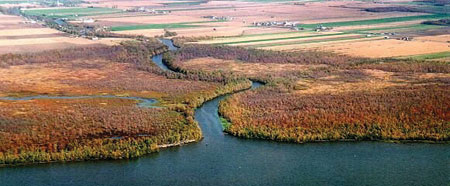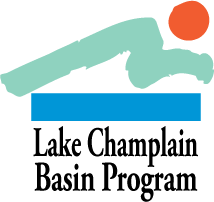Learning Begins with Questions
"One way that I believe students can display mastery of content in this place is to be willing to ask questions, strive for explanations and offer different approaches to viewing and interacting with their local surroundings."
Erin Hopper, WEC teacher, 2010-2011, Final Reflection
Questions provide the foundation for learning. When exploring your watershed, questions abound!
- Who lived here first?
- What are these slimy things?
- Where is it safe to swim?
- Who owns this shoreline?
- Why does the river flood here?
- Is this lake water safe to drink?
- What other things live here?
Questions are the pathways to big ideas, deep content, mastery of skills, and a lifetime of civic engagement. They provide curricular and cognitive routes for single-subject studies, multi-disciplinary learning, and self-directed inquiry.
Rivers offer one particular framework within which one can understand subjects, explore our local places and provide opportunities for civic engagement. Teachers can think of a single subject study, an interdisciplinary study, or an open-ended inquiry of civic engagement.

What questions will frame your study?
Where will the questions come from? The subject? The place? The students’ own questions? Can you find a way to blend all these kinds of questions together into a purposeful curriculum design?
One teacher reflects on how she did that:
“I decided to plan a unit that would ground my science curriculum for the coming year in a theme all about water, with the essential question: As we live on an island in Lake Champlain, what do we need to know about the Lake Champlain Basin in order to live here well, now and in the future? Each district science unit would be focused on a guiding question that would lead back to this essential question, so students would be prompted to consider a content concept of science in the context of water—specifically Lake Champlain.
Karin Ames, WEC teacher-2010-2011, Final Reflection

